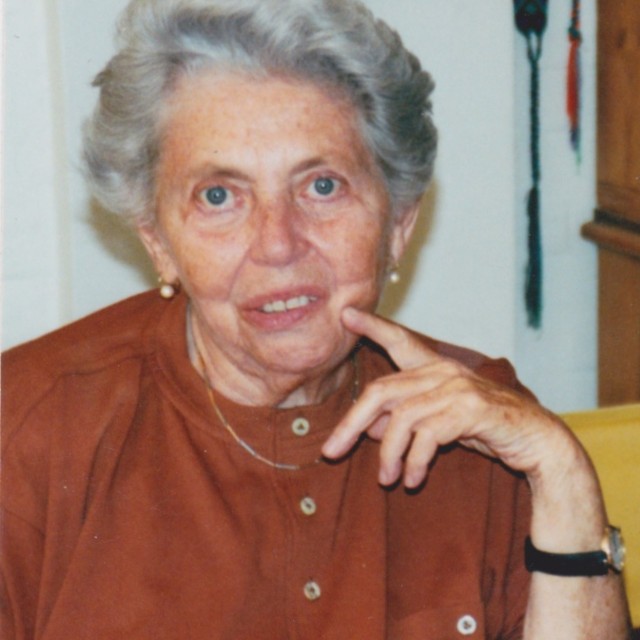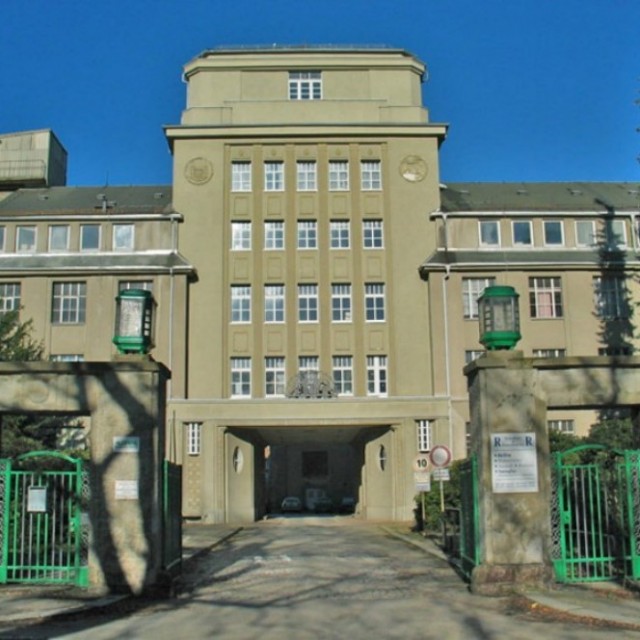We were making defective products
In the year 1944, sisters Marieta and Hana Bloch were taken by a transport from Auschwitz to the camp in Oederan. The local textile factory, which was transformed into a munitions and weapon factory during the war, was employing female prisoners. “We tried to do something for the defeat of Germany, so we were making defective products. Hana always said that she could tell whenever a product from my machine had reached her,” she recalled. The conditions in Oederan were more bearable compared to Auschwitz, but they were still very cruel:“Before and after each shift in the factory we all had to line up outside where they would count us. We were wearing summer clothes and winter was just starting. Every day, we would stand for two hours in the snow, but at least we could breathe some fresh air.” Both sisters were exhausted from the twelve-hour shifts and minimal food rations. But there were people who tried to help. “A German foreman would always leave a part of his food ration next to a machine of one of the workers,” Marieta recalled. When it was clear to the Germans, in the first half of 1945, that they would not win the war, they put the female prisoners of Oederan on trains and took them to Czechoslovakia.
Hodnocení
Abyste mohli hodnotit musíte se přihlásit!
Trasy
Příběh není součastí žádné trasy.
Komentáře

Marieta Šmolková (née Bloch)
Marieta Šmolková, (née Bloch), was born in 1921 in Dubí near Teplice. Her father owned a porcelain factory in Dubí. The Blochs were a Jewish family and for this reason they had to leave Dubí after the occupation of the borderlands by the Germans in 1938. Marieta then lived in Brno until the constitution of the protectorate. In Brno, they were getting ready for an escape abroad but they missed their chance and for the next two years they lived in Prague, where they were already obliged to respect the Nuremberg laws. In December 1941, Marieta, her sister, mother and her mother's second husband were deported to Theresienstadt. In Autumn 1944, they were sent to Auschwitz, where her mother's husband was immediately shot. Marieta and her sister were transferred after a week to work in the German town of Oederan. Their mother died in Auschwitz of dysentery. In April 1945, Marieta and her sister were moved back to Theresienstadt. The transport took eight days. In Theresienstadt they reunited with their father and remained there until the end of the war. After the war, the Blochs were branded as Germans and were deprived of their Czechoslovak citizenship. They only regained it after three years. Marieta got a job in the field of foreign trade and married Jaroslav Šmolka, who was also a survivor of the Holocaust. They've never joined the Communist Party. Mrs. Marieta Šmolková still lives in the Jewish quarter in Prague.




